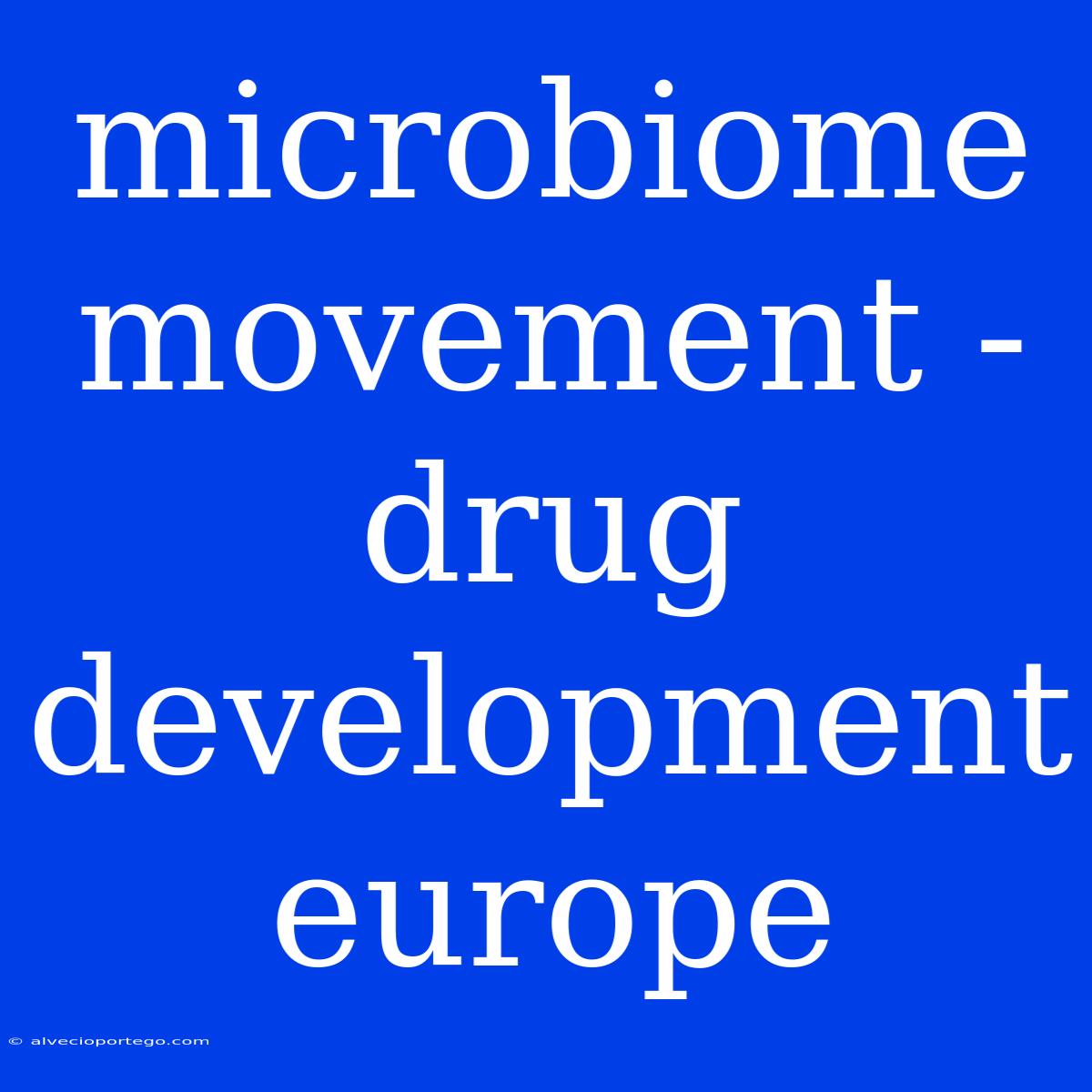Microbiome Movement: Europe's Leading Role in Drug Development
The human microbiome, the collection of trillions of microorganisms living within us, is rapidly emerging as a key player in human health. This has spurred a global "microbiome movement," with Europe playing a prominent role in translating this knowledge into groundbreaking drug development.
A European Focus on Microbiome Research
Europe has consistently been at the forefront of microbiome research. This is evident in:
- Strong funding: The European Union (EU) has invested heavily in microbiome research through initiatives like the Human Microbiome Project and the Horizon Europe program. This funding supports collaborative research efforts, fostering innovation and attracting talent.
- Prominent research institutions: Europe boasts renowned research institutions like the European Molecular Biology Laboratory (EMBL) and the Wellcome Sanger Institute, which conduct cutting-edge research on the microbiome's role in health and disease.
- World-class expertise: Europe houses a diverse pool of experts in microbiology, immunology, genetics, and bioinformatics, contributing to a deep understanding of the complex interplay between the microbiome and human health.
The Promise of Microbiome-based Therapies
The microbiome is increasingly recognized as a crucial factor in various diseases, including inflammatory bowel disease (IBD), obesity, allergies, and even cancer. This has led to an explosion of interest in developing novel therapies that target the microbiome. Europe is actively leading this charge, with a focus on:
- Fecal microbiota transplantation (FMT): This revolutionary technique involves transferring fecal matter from a healthy donor to a recipient with a disrupted microbiome. FMT has shown promise in treating recurrent Clostridium difficile infection, and researchers are exploring its potential for other conditions.
- Probiotics and prebiotics: These are dietary supplements designed to modulate the microbiome composition. European researchers are working to develop highly specific probiotics and prebiotics tailored to target specific diseases and improve their efficacy.
- Microbiome-based diagnostics: New diagnostic tools are being developed to analyze the microbiome and identify disease-specific signatures, allowing for earlier detection and personalized treatments.
- Gut-brain axis therapies: The growing recognition of the gut-brain axis, where the microbiome influences brain function, is driving research into microbiome-based therapies for neurological disorders.
Challenges and Opportunities
While the potential of microbiome-based therapies is immense, several challenges remain:
- Regulatory framework: The regulatory landscape for microbiome-based therapies is still evolving, requiring clear guidelines for safety and efficacy assessment.
- Standardized methodologies: Developing standardized methods for microbiome analysis and manipulation is crucial for ensuring reproducibility and clinical translation.
- Public acceptance: There is a need for greater public education and understanding of the microbiome to address concerns and encourage wider acceptance of these therapies.
Despite these challenges, the European microbiome movement is well-positioned to overcome them. With continued investment in research, a collaborative spirit, and a commitment to patient well-being, Europe is poised to play a leading role in shaping the future of microbiome-based drug development.

